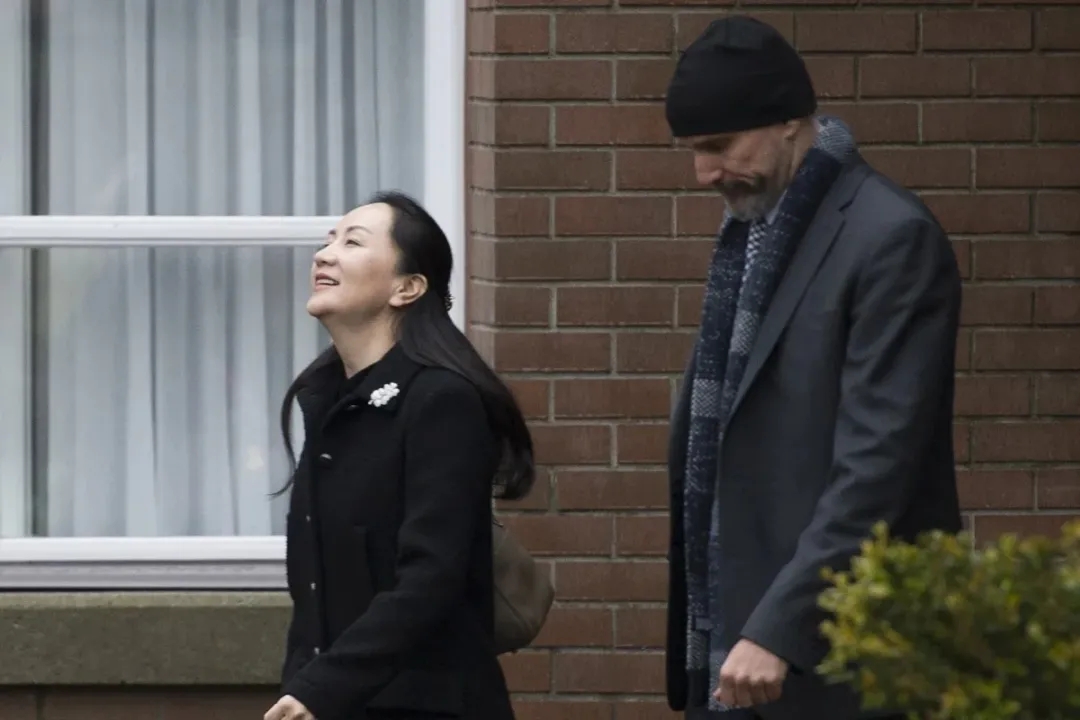Wang Huiyao: Canada should drop Meng Wanzhou case, shaking free of US coattails
August 05 , 2020

Meng Wanzhou leaves her home in Vancouver on January 20, when her court hearing started in Canada. Photo: AP
Canada has the right to halt the case, and strong reasons to do so, given the legal questions around the arrest and Trump’s political motivations. A resolution would help repair damaged ties with China.
By Wang Huiyao | President of the Center for China and Globalization(CCG)
In October 1970, Canadian prime minister Pierre Trudeau took a momentous step to establish relations with the People’s Republic of China. It was a bold move – Nixon’s famous visit to China was still two years off, and only a handful of Western countries had embassies in Beijing at the time.
Trudeau’s outreach proved to be a breakthrough. Canada went on to build deep ties with China and many other countries soon followed in recognising Beijing.
Fifty years later, an unfortunate turn of events has left Trudeau’s son – Canadian Prime Minister Justin Trudeau – in a rather more difficult position.
A legal drama has unfolded since December 2018, when Huawei chief financial officer Meng Wanzhou was arrested on a US warrant during a stopover in Vancouver. The episode has entangled Ottawa in President Donald Trump’s crusade against Huawei, to the detriment of Canada’s interests and its relations with China.
New developments have opened a window for Canada to extricate itself from this awkward position. In recent days, Meng’s lawyers have raised serious questions over the circumstances of her arrest. This follows an application last month to halt proceedings to extradite Meng to the US on accusations of misleading HSBC over Huawei’s links to a company operating in Iran.
Previously, Ottawa held that it has no legal authority to intervene in the case. However, following the release of a legal opinion by a leading Toronto-based lawyer, a consensus is forming that Canada’s justice minister can terminate the US extradition request at any time. This point was argued in a recent letter by 19 prominent Canadian figures, including senior politicians and diplomats.
Not only does Ottawa have the right to halt Meng’s extradition. There are also strong legal and pragmatic reasons for doing so.
First, it is clear to most that Meng’s arrest was politically motivated, part of a multipronged US attack on Huawei amid trade negotiations with China. Indeed, just 10 days after the arrest, Trump himself acknowledged the case was political, saying he would “certainly intervene” if it would serve US interests or help close a trade deal with China.
Furthermore, Meng’s arrest diverged from standard practice. Typically, the US deals with firms that contravene sanctions by fining the company involved – not by prosecuting an individual. For example, in 2012, HSBC was found guilty of failing to stop money laundering by criminals and several countries facing sanctions, including Iran. The bank paid a large settlement, but no individuals were charged.
Experience shows Trump is quite willing to intervene in prosecutions when it suits him. He did so twice in the case of his ally Roger Stone. Canada is by no means “doing the right thing” by simply going along with Trump’s self-serving agenda and handing over Meng.
There are also legal questions around the extradition. For starters, the evidence provided by HSBC for her arrest appears thin, amounting to little more than just one presentation deck, and also misleading, according to new claims by Meng’s lawyers.
The process of Meng’s arrest has also come under scrutiny. Lawyers argue Meng was questioned for hours without knowing what she was accused of, during which time Canadian Border Services Agency officers gathered evidence for the US. If true, this was a violation of her rights and an abuse of due process.
Taken together, the political motivation and legal questions surrounding the case are strong grounds to halt the extradition.
There are also good pragmatic reasons for Ottawa to act in its own interests and resolve this legal bind that has become a prime cause of strained ties between Canada and China.
Settling Meng’s case would help boost commercial relations with China amid headwinds from Covid-19. S&P Global Economics expects Canada’s real GDP to contract by 5.9 per cent this year. Trade with China – in particular, Chinese purchases of natural resources – was key in helping Canada out of the 2008 global financial crisis.
Repairing ties with China, which is the only major economy the World Bank expects to grow this year, could unlock new business opportunities and cushion some of the blow from the pandemic.
Strategically, it is in Canada’s interests to pursue an independent foreign policy and conduct relations with other countries as it sees fit, rather than blindly following the US.
Canada’s southern neighbour will always be its most important partner. But in a fast-changing, increasingly multipolar post-pandemic world, Ottawa would do well to diversify its geopolitical relationships rather than hew to Washington’s playbook.
Canada is home to almost two million Chinese Canadians – the highest share of the Chinese diaspora among the G7 countries – and many may be sympathetic to Meng. A friendly resolution to this case will benefit both Canada and China.
Canadians have a reputation for being nice and above board. Under normal circumstances, Ottawa’s refusal to intervene in this judicial matter might be seen as admirable. But these are not normal circumstances.
It would benefit all parties involved if Trudeau drew on the independent pragmatism of his father and moved decisively to end this legal dilemma once and for all.

Dr. Wang Huiyao is president of the Center for China and Globalization(CCG), the leading non-government think tank in China, with over 100 researchers and members of staff.
Topical News See more






